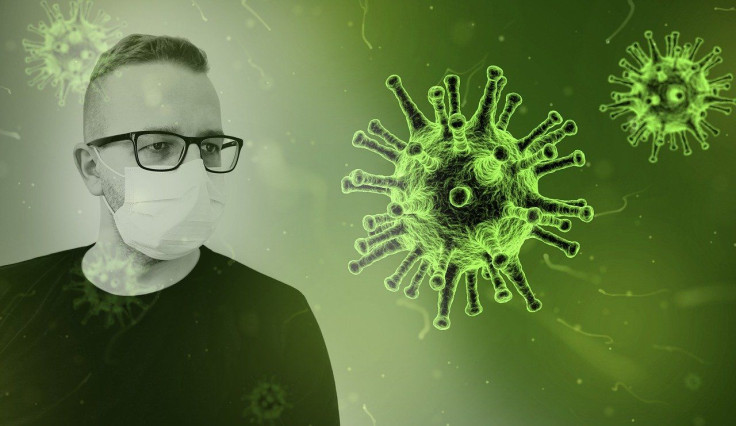Recent Study Shows Testicles May Increase Vulnerability Of Men To COVID-19 Infection

KEY POINTS
- A new study suggests coronavirus may be taking sanctuary in the male testicles
- Researchers say the male testicle is walled off from the immune system
- Reports say coronavirus likely to severely affect men more than women
Researchers of a new study suggest that men’s testicles may be playing a role in why male victims are dying from COVID-19 at twice the rate of female victims. While the study, if proven true and corroborated by other studies, may have dramatic implications to the ongoing fight against the infection, it actually runs contrary to past such studies. The new study has not been peer-reviewed and released before its publication on MedRxiv, a medical website.
'Testicles offer a safe sanctuary for the virus'
The new study suggests that testicles may provide a safe sanctuary for the coronavirus against the body’s immune system, allowing the infection to last for a longer time in males. The study was conducted by New York-based oncologist Dr. Aditi Shastri and her mother, Dr. Jayanthi Shastri, a microbiologist at the Kasturba Hospital for Infectious Diseases in Mumbai, India.
According to the mother-daughter researcher team, when coronavirus enters the body, it adheres to cells expressing the protein ACE2, or angiotensin converting enzyme 2. These cells are typically found in the heart, intestines and lungs. They are also found in large quantities in the testicles of men, while only small quantities are found in women’s ovarian tissue.
The researchers observed 48 men and 20 women living in Mumbai who had tested positive for COVID-19. According to them, it took four days for COVID-19 positive women who took part in the study to be cleared of their infection while it took 50% longer in the case of the men.
In the three families that participated in the study, men were also found to recover longer from coronavirus infection compared to women. The age of the participants ranged from three to 75 years. The average age fo the study participants, according to researchers, is 37 years.
A different study, a different result
While current data may show COVID-19 is likely to severely affect men more than women, Dr. Ian Jones opines taking sanctuary in the testes is “not generally” what coronavirus does. A virology professor at the University of Reading, Dr. Jones said to reach the testes, the virus would have to travel in the bloodstream. “The main site of virus replication is the respiratory tract and to reach other sites the virus should have to travel in the bloodstream,” he said. He also said that men historically fare worse compared to women in immunological outcomes.
Dr. Jones thinks this may be because men only have one X chromosome, causing an imbalance that is possibly behind the differences. He added, however, that such a hypothesis is not peer-reviewed. Another such opinion was supplied by Dr. Jonathan Ball, a professor of Molecular Virology at the University of Nottingham. He revealed that a separate study did not find any evidence of coronavirus in the semen of COVID-19 victims. He said this just goes to show that the organ is not an “important reservoir” for the coronavirus.
A different study, which was also not peer-reviewed but pre-printed, asked a small number of COVID-19 positive males to have their semen checked for the presence of coronavirus. This was done while they were still recovering from the infection. Another sample was taken from the testes of another patient who had already died.
Dr. Ball said that none of the samples showed any presence of the virus, which suggests that the male genital tract is not a vital repository of the virus. Dr. Derek Hill, a professor of Medical Imaging at the University College London, agreed and said more data is needed before any solid conclusions are derived from the study.
© Copyright IBTimes 2025. All rights reserved.





















